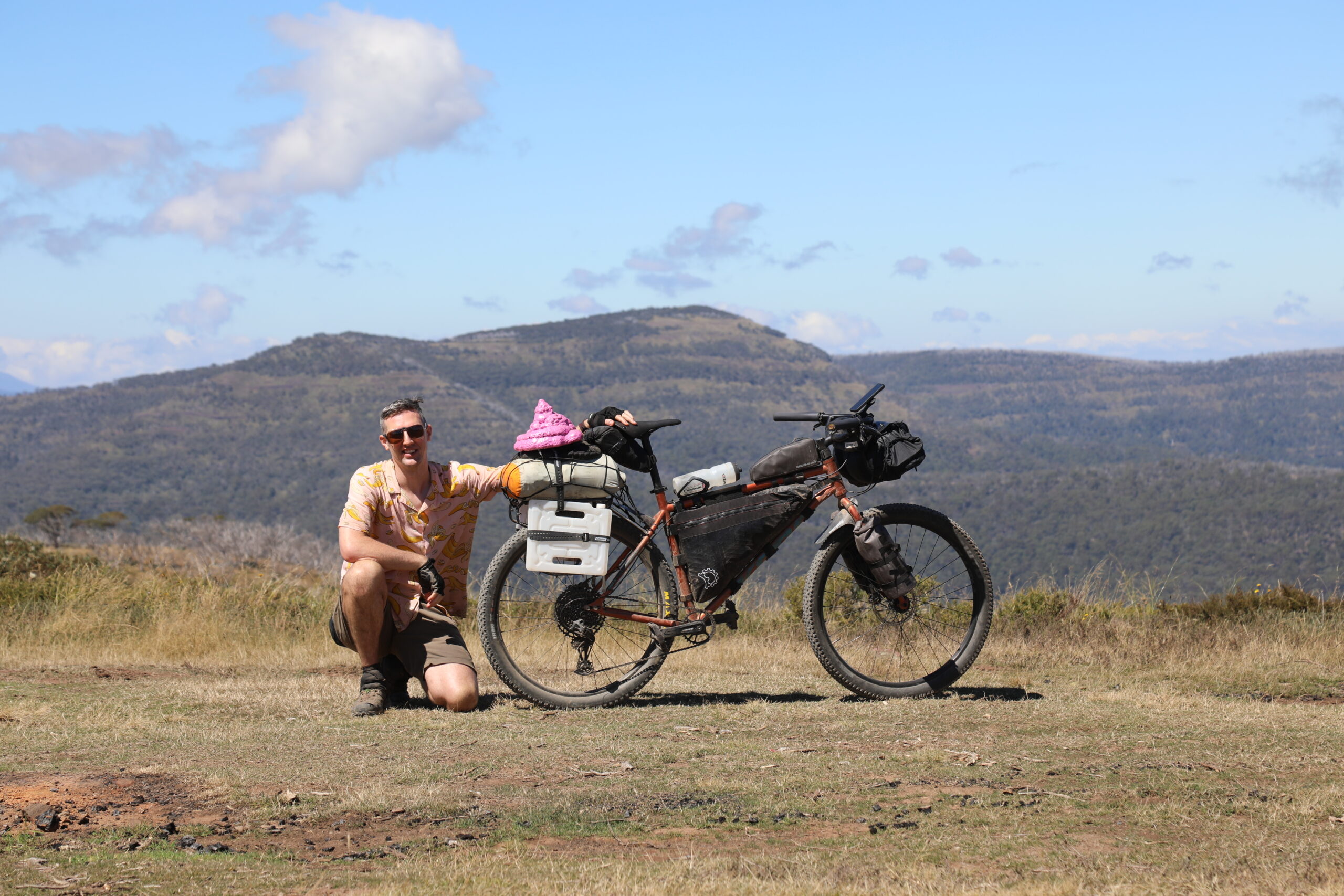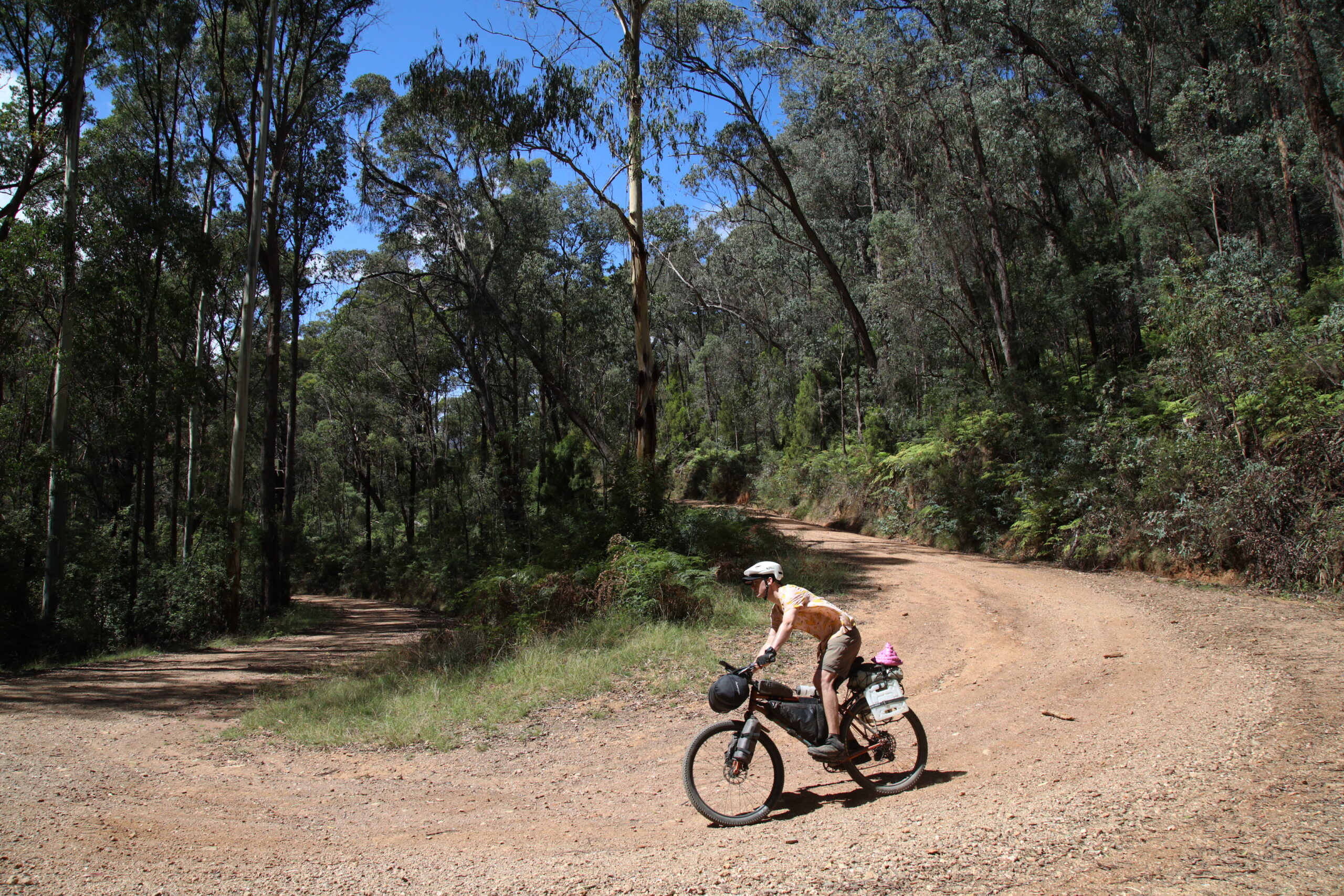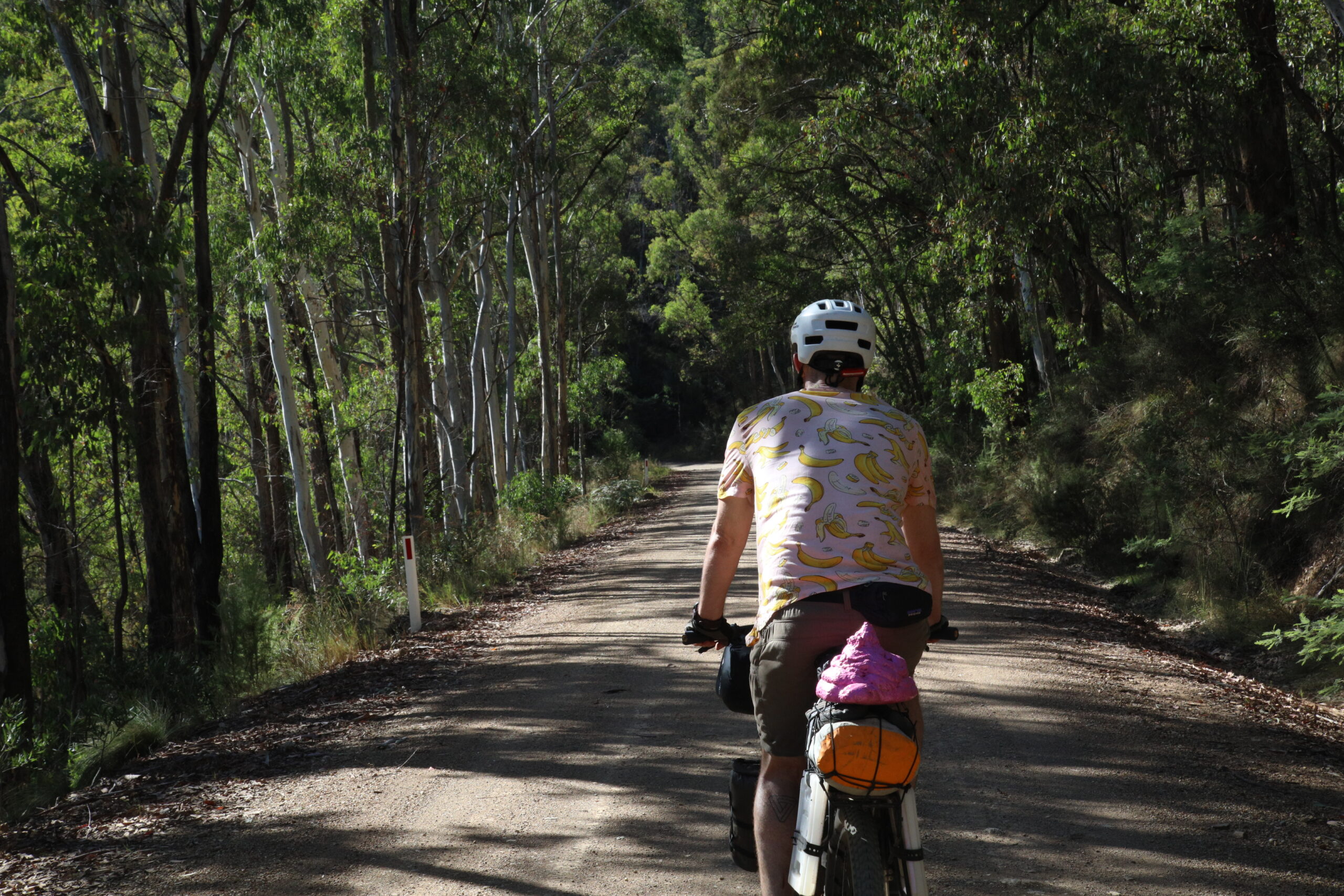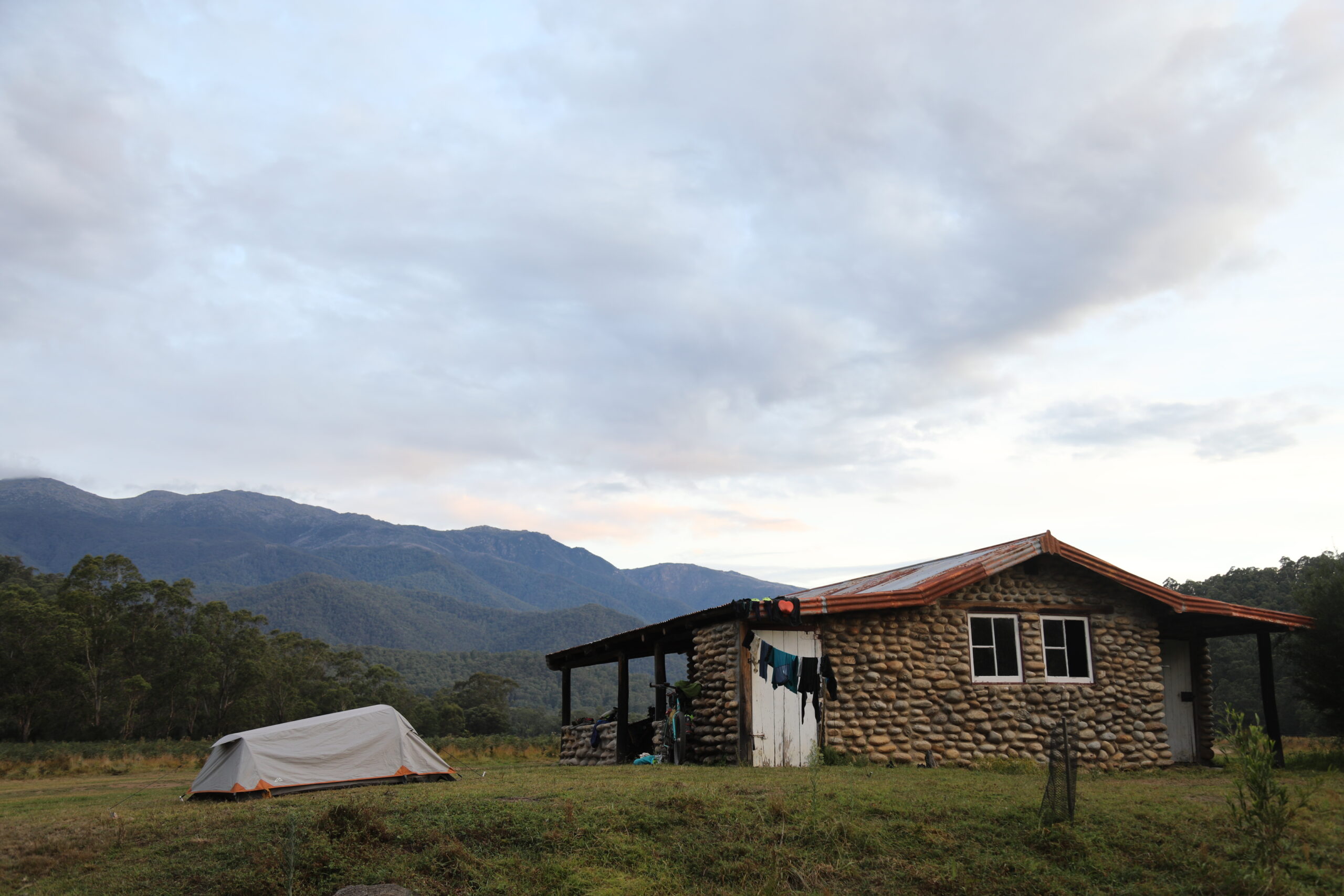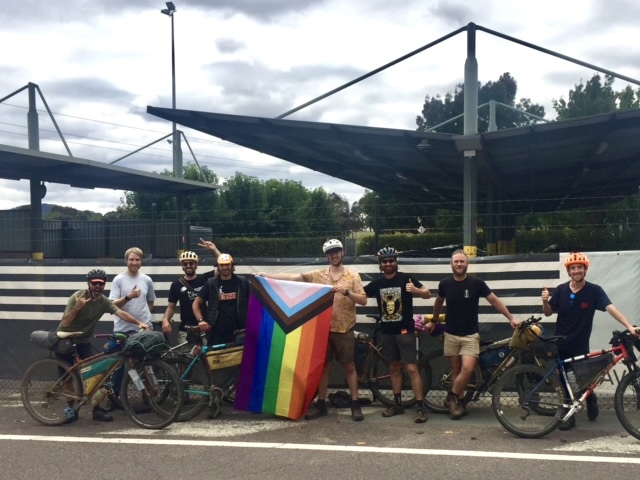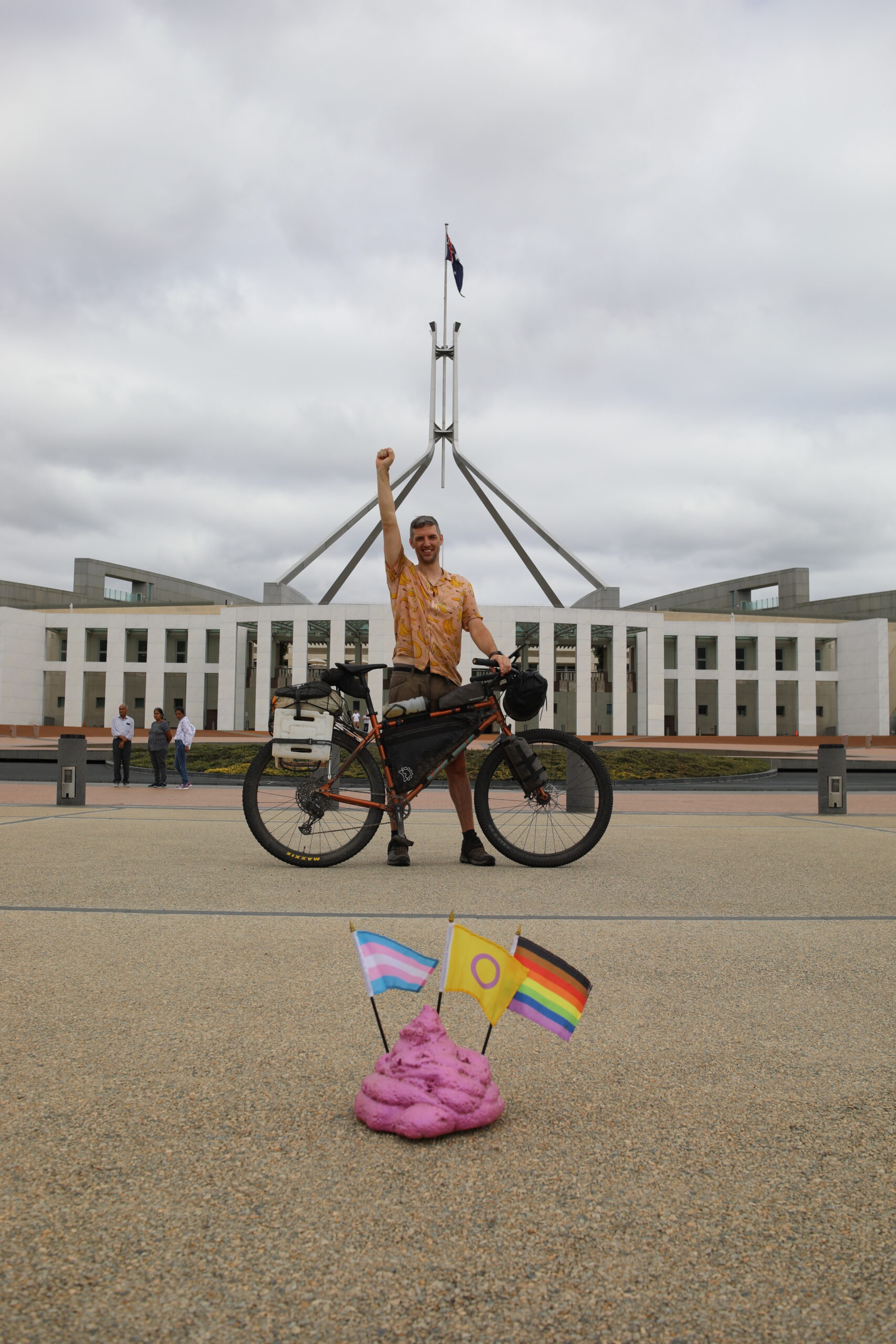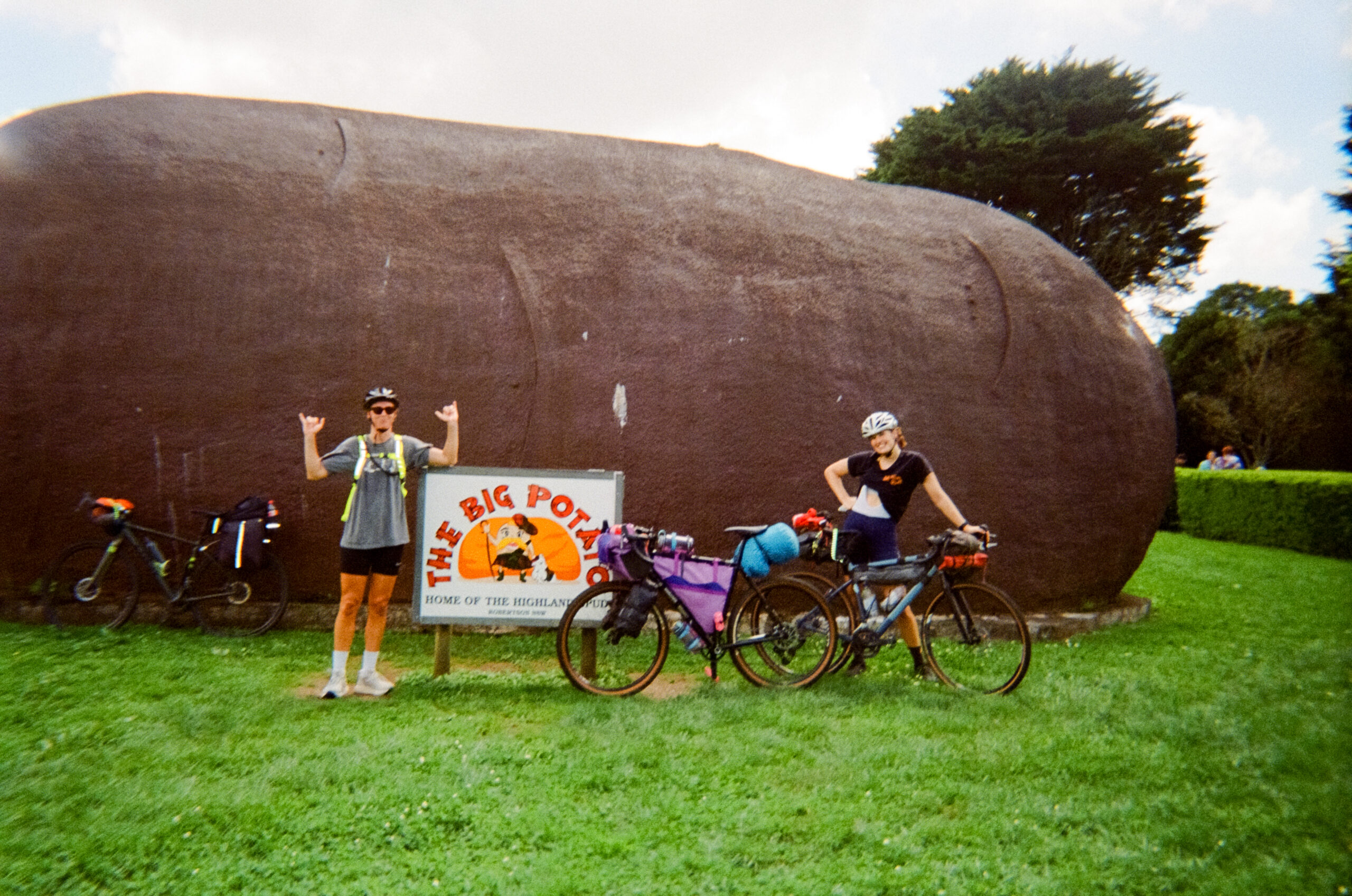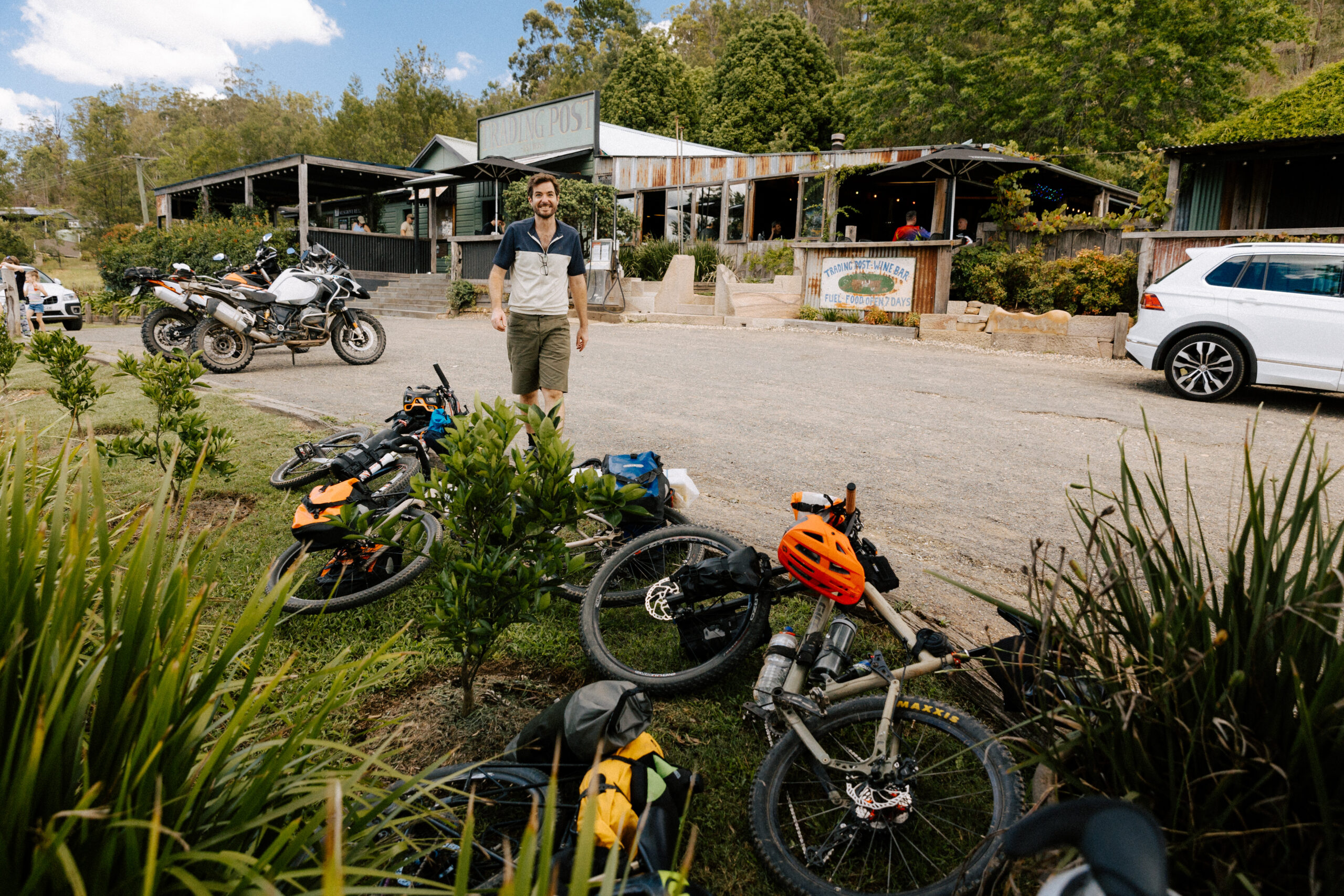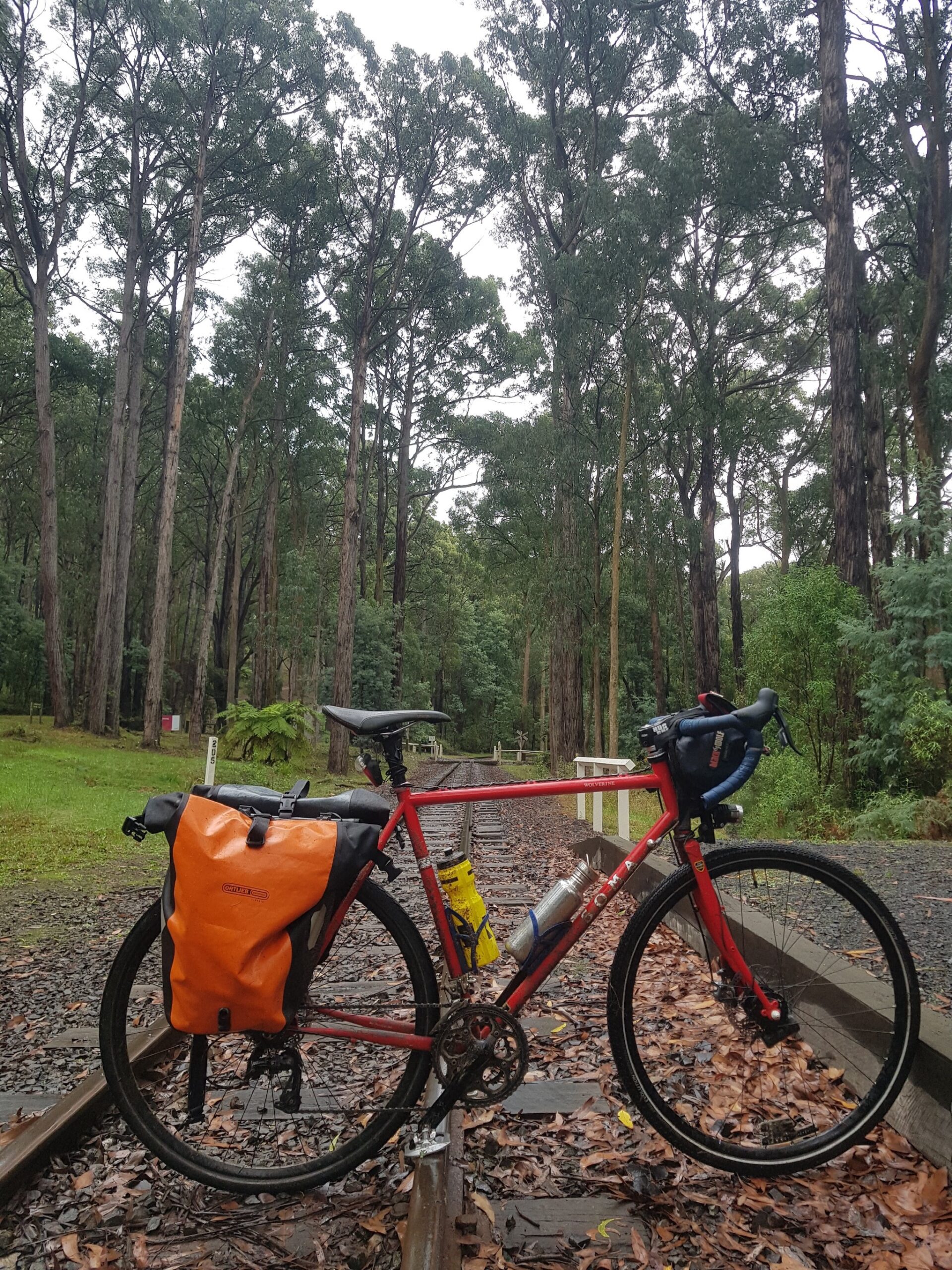Pink Pooped on the Hunt 1000
Words by Robbie McEwan – he/him
Photos by Mattie J Gould and Robbie McEwan
7 minutes
While scrolling my phone late one night, a certain post made me stop. I put my wine glass down and turned to my partner. “Last-minute registrations for The Hunt have reopened. It’s a 1000km ride, but it’s in three weeks,” I slurred, “what do you think?”
“Well babe”, he replied, “as long as you don’t die.“
I laughed and began mentally calculating the likelihood.
The Hunt 1000
The Hunt 1000 between the Kulin and Ngunnawal Country has a well-earned reputation for being tough. It crosses mountainous terrain that’s usually the preserve of 4x4s and wild horses. Past years have seen snow, rescues, and attrition rates of over 50 percent. After registering that night I was filled with excitement and apprehension. What a great adventure after years of rolling lockdowns. But as a novice without training and much mechanical know-how, would I make it? And what would the culture be like? Did tough equate to macho?
The Beginning
Well before I felt ready, I was riding through tall mountain ash on my laden Kona Unit X. It was beautiful and tough, but I could pace myself. That’s because the Hunt 1000 isn’t a race. Instead of a grand departure date, there’s a grand arrival. Riders set off on different days and gradually bunch up as they near the finish. So I was 230km in before I met my first fellow bikepackers. In fact, the pastime being a pandemic discovery for me, they were the first bikepackers I’d ever met outside of bike shop staff.
They burst into the Jamieson pub as I haggled with the drunk owner to keep the kitchen open past the ungodly hour of 7.00pm for incoming riders. Mattie, Michael and Mark – two Canberrans and a Melbournian. Happily, we managed to wrangle some meals, and after raiding the store the next morning we headed on. This was a make-or-break day for me. I’d been struggling with a bad knee and wasn’t sure if it would loosen up or take me out. But Mark slipped me a pack of anti-inflammatories, and Mattie and I chatted for hours as we climbed steadily up into the High Country.
Soon the late afternoon sun lit the tops of the eucalypts gold while the kilometres clicked away beneath us. By the time we arrived at camp I knew I could make it; and that rather than being macho the culture of these riders was thoughtful and supportive. It was a good thing too, as I was toting a giant pink poop on my rear rack.
The Pink Poop
I’d constructed this large fuchsia crap out of expanding foam and nail polish back in Melbourne. The gimmick was to deliver it to Sco-mo’s Coalition government by bike as a fundraiser. After years of attacks from that quarter, many LGBTIQ+ people and allies were very happy to sponsor the journey with funds going toward LGBTIQ+ mental health. But I had to make it to the capital to keep my promise. As the days and kilometres ground by, I met more great riders, developed more saddle sores and soaked in the gorgeous Australian landscapes.
The Jagungal
One highlight was the second waypoint camp at Behr Flat, a broad alpine valley with a swimming hole. It was crewed by ride organiser Dan Hunt, an open, softly spoken man who filled each rider up with dahl as they passed through. Then came what many riders experienced as the most difficult and spectacular section. An epic climb that ended only when the trail dissolved into a grassy notion that wound across the Jagungal Wilderness.
It was easy to fall in love with the Jugungal, with its clear creeks and soft alpine meadows. Ridge after ridge fading away into the blue of distance. But every kilometre riding on that lumpy grass was hard won. One rider disclosed a secret wish for his bike to break so he could give up. My hands numbed and curled with nerve compression and the faces around me took on haunted looks of exhaustion. At the huts my excess mee goreng was received like manna from heaven and whiskey was passed around.
A Grand Arrival
Finally, on the morning of the grand arrival I coasted down from the hills towards Canberra alone, slowing as I went to savour the last stretch. The flagpole atop Parliament House eventually came into view. The pink poop made it to federal parliament, raising about $4 for every kilometre for Switchboard, a phone counselling service for the LGBTIQ+ community and allies.
But before reaching the endpoint of the Hunt I came across Mattie, one of the first bikepackers I met in Jamieson. He had finished a day early and was waiting by the trail with snacks and a smile, ready to ride me to the end. Then came Mark and Brandon. Then Dick, Julian and Martijn! High on exhaustion, I couldn’t quite believe such kindness. It was awesome, and the seven of us pedalled the last few kilometres together. The choice of a brewery for the finish was greatly appreciated as we spun across the line. The pink poop was well and truly pooped, and beers and nachos were just what was needed.
A Safe Space
As the beer garden filled with finishers over the afternoon, it was clear that bikepacking has a way to go to reflect the world we live in. Only a handful of the riders were women or people of colour. However, the culture of The Hunt has a quality of aspirational inclusivity. Often outdoor cultures and sports aren’t welcoming for LGBTIQ+ people. To participate, we must accept a degree of internal discomfort. For example, being confronted with homophobic route names when climbing, or casual slurs flying about in team sports.
Regional areas can be similar (a Jamieson local joked that drivers would run into me because I wore a pink shirt). In these environments, LGBTIQ+ people have learned to keep a part of our brains always running to evaluate threat. The term ‘safe space’ has emerged to describe places where people feel comfortable enough to switch that part of their brain off. The warmth of character of the other riders I met on the Hunt made me feel like I could do that.
Dan Hunt’s inversion of the race format, where people depart when they want and race to make it to a celebration is a stroke of genius that helps people come together too. The introduction of the Hunt 500 is another great development, allowing people facing barriers of time or ability to participate. In addition, the entry fee is very affordable for the time invested to scout ever-changing routes and conditions and administer the event. These elements combine to create a welcoming vibe, absent the conformity, perfectionism and competitiveness that frequently accompany challenging sports.
In the face of politicians using sport to divide us (particularly around transgender issues) it’s great to see bikepackers building welcoming communities. More open events and groups with explicit invitations to underrepresented and differently-abled people are popping up. And it makes sense that they should. Monocultures are dull, nature is infinitely diverse, and what’s more core to bikepacking to the ethos of ‘ride your own ride’? Just make sure you look up from time to time and admire the view. After the Hunt the pain fades quick but the awe and satisfaction stay with you.
This article was written on the unceded lands of the Wurundjeri people of the Kulin nation. The Autumn 2022 Hunt 1000 passed through Wurundjeri, Boonwurrung, Taungurung, Gunai Kurnai, Jaitmatang, Ngarigo and Ngunawal Country. The writer pays his respect to Traditional Custodians across the continent.
